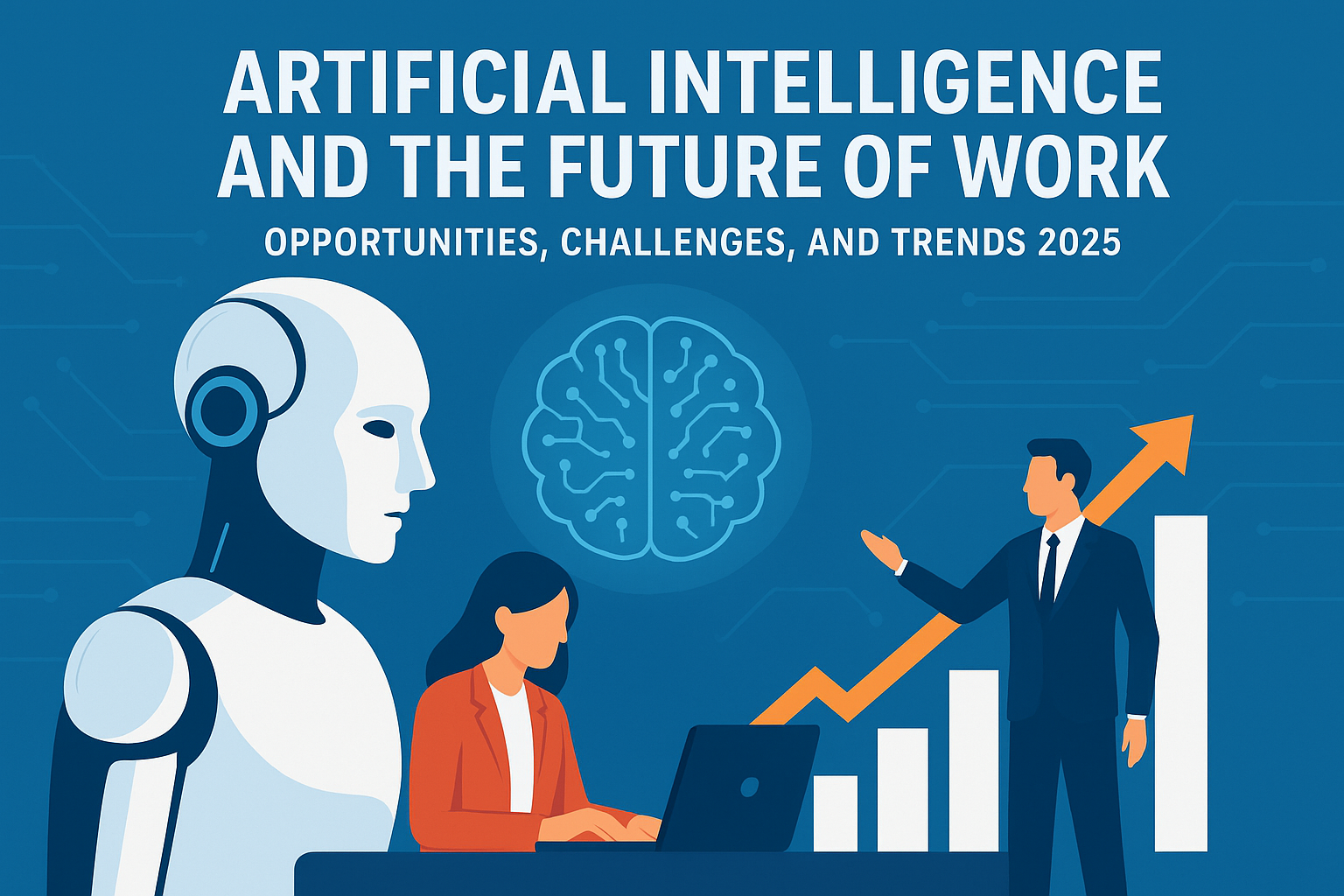Introduction
Thank you for reading this post, don’t forget to subscribe!The world is entering a new era where Artificial Intelligence (AI) is no longer just a futuristic concept—it is a reality shaping industries, careers, and everyday life. From smart assistants like ChatGPT and Alexa to self-driving cars and advanced healthcare diagnostics, AI has become a core driver of innovation. But with progress comes disruption. The burning question is: how will AI change the future of work?
This blog explores AI’s journey, its impact on jobs and businesses, the opportunities it creates, the challenges it brings, and what the future of work may look like by 2030.
Historical Background of AI
- 1950s–1970s: Early concepts of machine learning and neural networks.
- 1980s–1990s: Expert systems and robotics growth.
- 2000s: Rise of data-driven AI with Big Data and advanced computing.
- 2010s–2020s: AI goes mainstream—chatbots, recommendation systems, predictive analytics, and automation tools.
- 2025 and beyond: Generative AI, autonomous systems, and AI-powered industries are revolutionizing economies worldwide.
How AI is Changing the Nature of Work
- Automation of Repetitive Jobs: Data entry, manufacturing, and customer service are increasingly handled by AI.
- New Job Creation: AI is generating demand for roles in machine learning, AI ethics, data science, and robotics.
- Decision-Making Support: Businesses use AI for predictive analytics, risk management, and financial forecasting.
- Remote and Hybrid Work: AI tools enable real-time collaboration, productivity tracking, and virtual training.
- Personalized Learning & Upskilling: EdTech platforms use AI to customize learning for individuals.
Opportunities Brought by AI
- Efficiency & Productivity: Automation reduces cost and increases speed.
- Innovation: AI accelerates research in medicine, climate, and space exploration.
- Entrepreneurship: Startups are leveraging AI for e-commerce, fintech, and digital marketing.
- Global Collaboration: Cloud-based AI systems connect workers across borders.
- Inclusive Development: AI can empower differently-abled individuals with assistive technologies.
Challenges and Risks
- Job Displacement: Millions of routine jobs risk automation by 2030.
- Skill Gap: Demand for AI and digital skills far exceeds current workforce capabilities.
- Ethical Concerns: Issues of bias, privacy, and decision-making transparency.
- Economic Inequality: Richer nations may benefit more, widening global divides.
- Overdependence on Machines: Risk of reduced human creativity and critical thinking.
Skills Needed for the AI Future
To thrive in the AI-powered job market, workers must embrace future-proof skills:
- Digital Skills: Data analysis, AI tools, coding.
- Soft Skills: Creativity, critical thinking, problem-solving.
- Ethics & Governance: Understanding AI responsibility.
- Adaptability: Ability to learn new technologies quickly.
The Global Perspective
- United States & Europe: Leading in AI innovation, regulation, and ethical frameworks.
- China: Aggressive investment in AI infrastructure and robotics.
- India: Focusing on AI in healthcare, agriculture, and digital governance.
- Africa & Latin America: Emerging markets using AI for education, e-commerce, and fintech.
The Future of Work with AI (2025–2035)
- Hybrid Workforce: Humans and machines working together.
- AI in Leadership: Smart algorithms assisting in policy and business decisions.
- Lifelong Learning: Continuous upskilling will become mandatory.
- Human-Centered AI: Focus on designing AI that enhances, not replaces, human potential.
- New Industries: AI in green technology, space exploration, and biotechnology will create entirely new career landscapes.
Conclusion
Artificial Intelligence is not just about robots taking over jobs—it is about reshaping the future of work. While automation will replace some roles, it will also unlock new opportunities, drive innovation, and demand new skill sets. The key lies in adaptability, reskilling, and responsible use of AI.
The future will not be AI vs. humans—it will be AI with humans. The winners of tomorrow will be those who embrace AI as a partner in progress.

Leave a Reply